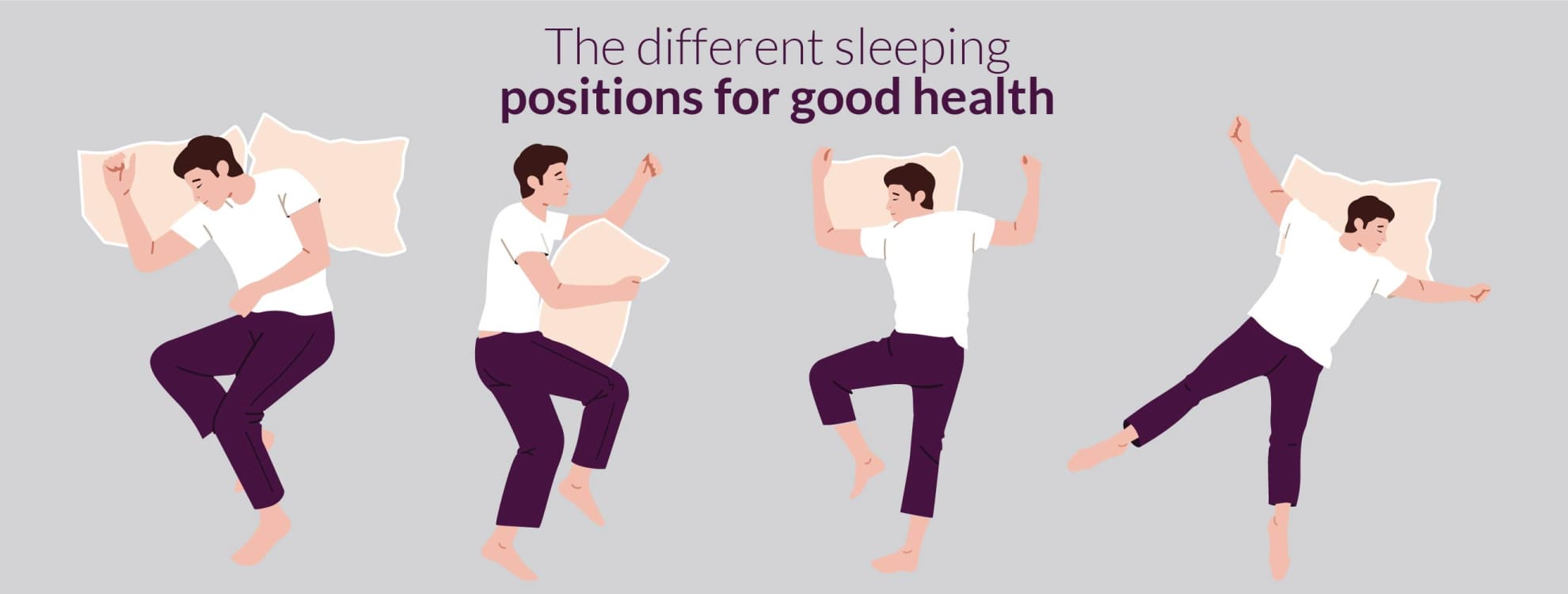Sleep is an essential part of maintaining good health, providing the body with the necessary rest for physical recovery, mental clarity, and emotional stability. We often focus on how much sleep we need, typically 6-8 hours a night, as recommended by health experts. However, what many don’t consider is the importance of how we sleep. The position we choose to rest in plays a significant role in our overall well-being, with certain positions being better suited to promote health than others.
One sleeping position that has raised concerns is sleeping on your right side. While this may seem like a natural, comfortable position for many, studies suggest that it could have potential drawbacks. In this article, we will explore the disadvantages of sleeping on your right side and provide insights into why changing your sleep position could improve your health.
1. Less Efficient Lymphatic Drainage
The lymphatic system is responsible for flushing out toxins, waste, and excess fluids from the body. It helps maintain the body’s immune function by filtering out harmful substances. Interestingly, the lymphatic system primarily drains to the left side of the body, where it empties into the thoracic duct, which then connects to the left subclavian vein.

When you sleep on your right side, you may impede this drainage process. The right-side position can cause the lymph fluid to accumulate, slowing down the natural detoxification process. This can be particularly troublesome for people with circulatory or lymphatic issues, as it could lead to fluid buildup or edema in areas of the body. If you’re prone to swelling or have issues with your lymphatic system, sleeping on your left side is a more effective choice for encouraging optimal lymphatic flow.
Source: “Lymphatic System Function,” National Institutes of Health (NIH)
2. Increased Pressure on the Heart
Your heart is located slightly to the left side of your chest, and its positioning can influence the impact of sleep on cardiovascular health. When you sleep on your right side, you may place additional pressure on the heart, especially for individuals who already suffer from heart conditions. This can lead to discomfort, palpitations, or difficulty falling asleep due to the added strain on the heart.

For those with pre-existing heart disease or hypertension, sleeping on the right side may exacerbate symptoms, leading to disturbed sleep and increased heart rate throughout the night. While this may not pose an immediate risk for healthy individuals, it is crucial to be mindful of the position you sleep in if you have any underlying heart conditions.
However, the impact on heart health largely depends on individual conditions and overall cardiovascular health. For those without any heart issues, sleeping on the right side is unlikely to have a significant negative effect, though it may still affect the quality of your sleep.
Source: “The Effects of Sleep Position on Cardiovascular Health,” American Heart Association
3. Digestive Problems and Gastric Reflux
Gastroesophageal reflux disease (GERD), commonly known as acid reflux, is another health concern that can be aggravated by sleeping on your right side. In this position, the stomach acids are more likely to flow back into the esophagus, causing discomfort, burning sensations, and heartburn. This is due to the anatomical position of the stomach and its relation to the esophagus when lying on the right side.
In contrast, sleeping on the left side can help alleviate symptoms of GERD and acid reflux. When you lie on your left side, gravity helps keep the stomach acids in place, preventing them from flowing up into the esophagus. For people with conditions like hiatal hernia or GERD, switching to the left-side sleeping position can offer much-needed relief.

In addition to preventing acid reflux, left-side sleeping also helps to improve the digestive process. It promotes the natural movement of food through the intestines, reducing bloating, indigestion, and discomfort. Therefore, if you’re prone to digestive issues, sleeping on your left side can significantly improve your overall digestive health.
Source: “The Impact of Sleep Position on Gastroesophageal Reflux Disease,” American College of Gastroenterology
4. Which Position is Best for Your Health?
While sleeping on your right side may be a comfortable position for many, it’s important to consider its potential long-term effects on your health. Research suggests that the left-side sleeping position offers numerous health benefits, particularly in terms of supporting lymphatic drainage, cardiovascular health, and digestive processes.
:max_bytes(150000):strip_icc()/leftsidesleeping-219f6edc0a864d0180f6b1cf58e48650.jpg)
Sleeping on the left side facilitates the proper flow of lymphatic fluid, reduces pressure on the heart, and minimizes the risk of acid reflux. It is also beneficial for pregnant women, as it helps improve circulation and blood flow to the fetus. Left-side sleeping can promote better circulation, which is vital for overall health and well-being.
In addition, left-side sleeping has been linked to better detoxification and the elimination of waste products from the body. This can support the body’s natural healing processes, ensuring that your immune system functions optimally while you sleep.
Source: “Health Benefits of Sleeping on the Left Side,” Sleep Foundation
5. Conclusion: Adapting Your Sleep Position for Better Health
While sleeping on your right side is not necessarily harmful to everyone, adopting the habit of sleeping on your left side can offer significant health benefits. By switching to the left side, you can encourage optimal lymphatic drainage, reduce pressure on the heart, and minimize the risk of digestive problems like acid reflux.

As we spend approximately one-third of our lives asleep, it’s important to choose a sleeping position that supports our overall health. Paying attention to your sleep posture can help you achieve better sleep quality, promote bodily healing, and support long-term well-being.
If you’re unsure about your sleep position or have any health concerns, it’s always a good idea to consult with a healthcare professional who can provide personalized recommendations based on your individual needs.
Sources:
- National Institutes of Health (NIH) – Lymphatic System Function: NIH.gov
- American Heart Association – Effects of Sleep Position on Cardiovascular Health: heart.org
- American College of Gastroenterology – Sleep and GERD: gi.org
- Sleep Foundation – Health Benefits of Sleeping on the Left Side: sleepfoundation.org
